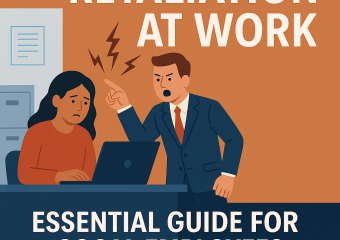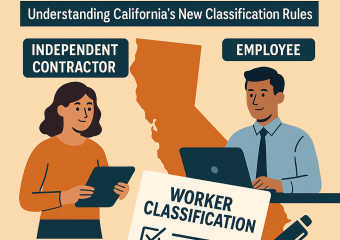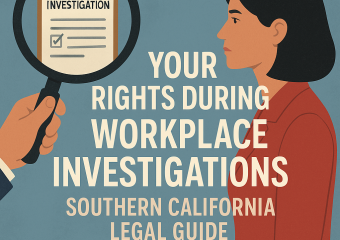Your Legal Rights at Work: A Southern California Survival Guide
Understanding your legal rights at work is essential for every employee, especially in a bustling and diverse region like Southern California. Whether you’re navigating issues around workplace discrimination, wage disputes, or safety concerns, knowing what protections the law affords you can make a significant difference in your professional life. This comprehensive guide aims to empower Southern California workers with the crucial knowledge needed to safeguard their rights and thrive in their careers.
Knowing Your Fundamental Workplace Rights in Southern California
Southern California offers employees a robust set of protections that stem from both federal and state laws. The foundation of your legal rights at work begins with anti-discrimination statutes like Title VII of the Civil Rights Act, the California Fair Employment and Housing Act (FEHA), and other workplace regulations designed to promote fairness and safety.
Protection Against Discrimination and Harassment
One of the most critical areas of employee rights involves protection from discrimination and harassment. California’s FEHA is among the strictest in the nation, prohibiting discrimination based on race, gender, sexual orientation, religion, age, disability, and many other characteristics. Importantly, this law covers all employers with five or more employees, which means most workplaces in Southern California fall under its jurisdiction.
If you experience discriminatory treatment, retaliation for reporting misconduct, or harassment at work, you have the right to file a complaint with the California Department of Fair Employment and Housing (DFEH). Being informed about these protections is your first step in confronting unlawful workplace behavior.
Wage and Hour Rights: Fair Pay for Your Work
When it comes to compensation, Southern California workers benefit from several laws designed to guarantee fair pay. The California Labor Code mandates minimum wage standards that often exceed the federal minimum wage. For example, many cities like Los Angeles and San Diego have their own minimum wage ordinances, often adjusted annually to keep pace with inflation and the cost of living.
Additionally, rules surrounding overtime pay are strictly enforced. Employees who work more than eight hours a day or 40 hours a week typically qualify for overtime pay, unless they are classified as exempt under certain criteria. Knowing whether your role is classified as exempt or non-exempt is essential to ensure you are compensated correctly.
Workplace Safety and Health
Your right to a safe workplace is protected under both federal law through the Occupational Safety and Health Administration (OSHA) and state law via Cal/OSHA in California. Employers are required to provide a workplace free from recognized hazards, such as unsafe machinery, exposure to toxic substances, or inadequate emergency procedures.
If you believe your workplace is unsafe, you have the right to report it without fear of retaliation. Cal/OSHA can conduct inspections and require employers to fix hazardous conditions, ensuring that Southern California workers remain safe on the job.
Navigating Leaves of Absence and Accommodation Requests
Understanding your entitlements around leaves of absence is another crucial aspect of your legal rights at work in Southern California.
Family and Medical Leave
Under the federal Family and Medical Leave Act (FMLA) and the California Family Rights Act (CFRA), eligible employees can take unpaid, job-protected leave for medical conditions, family emergencies, or to care for a newborn or adopted child. These laws apply to employers with a minimum number of employees and provide you with rights that protect your job security during critical times.
Disability and Religious Accommodations
If you have a disability or require accommodations for religious practices, both federal and California laws require employers to provide reasonable modifications as long as they do not cause undue hardship on the operation of the business. This might include changes in work schedules, modifications in duties, or providing assistive devices.
Knowing how to formally request these accommodations and what documentation may be needed helps ensure your needs are respected while maintaining a harmonious work environment.
Your Rights When Facing Unfair Treatment or Termination
Unfortunately, even with strong legal protections, employees sometimes encounter unfair treatment or wrongful termination. Understanding your rights in these scenarios is paramount.
Wrongful Termination
California is an “at-will” employment state, which means employers can terminate employees for any or no reason, as long as it isn’t illegal (such as discrimination or retaliation). If you suspect you were fired due to discrimination, retaliation for whistleblowing, or in violation of an employment contract, you may have grounds for legal action.
Filing a Complaint and Seeking Legal Support
If you believe your rights have been violated, you are not powerless. You can file complaints with agencies like the DFEH or the Equal Employment Opportunity Commission (EEOC) and may wish to consult an employment attorney who specializes in California labor laws.
Final Thoughts: Empower Yourself with Knowledge
Your legal rights at work in Southern California are extensive and designed to protect your dignity, safety, and livelihood. From knowing how to address discrimination to understanding wage laws and safety codes, being informed is the first step toward advocating for yourself and others.
If ever in doubt, reach out to local labor rights organizations, legal aid services, or workplace advocates. Empowerment through knowledge ensures you can navigate your career with confidence and security in the dynamic Southern California job market.




